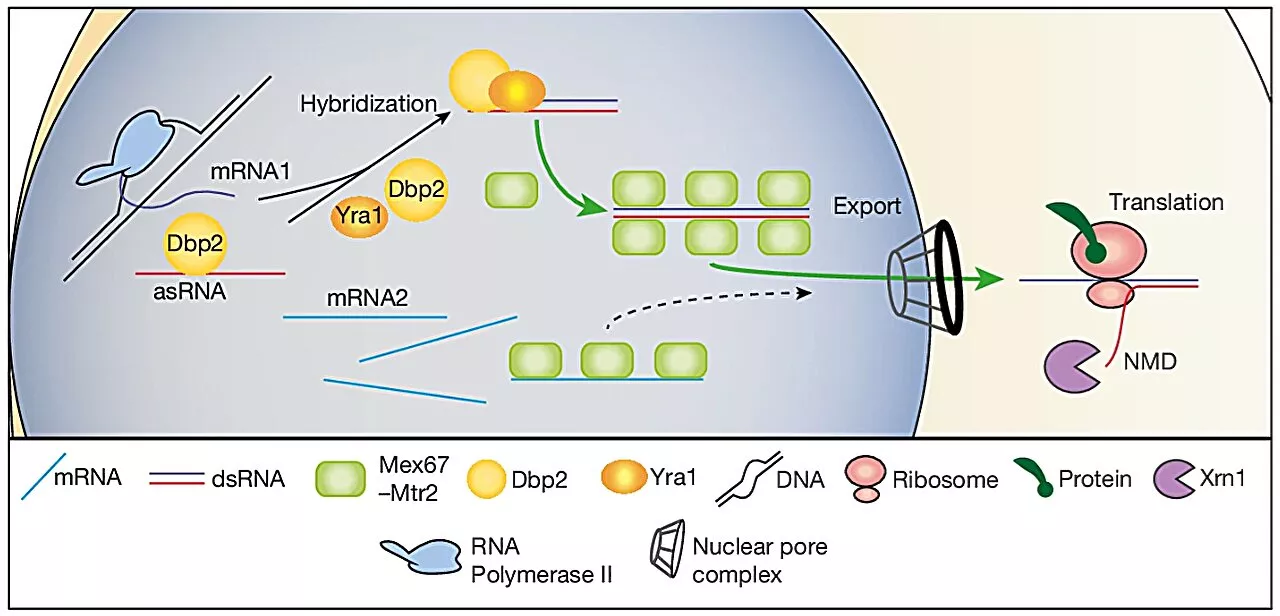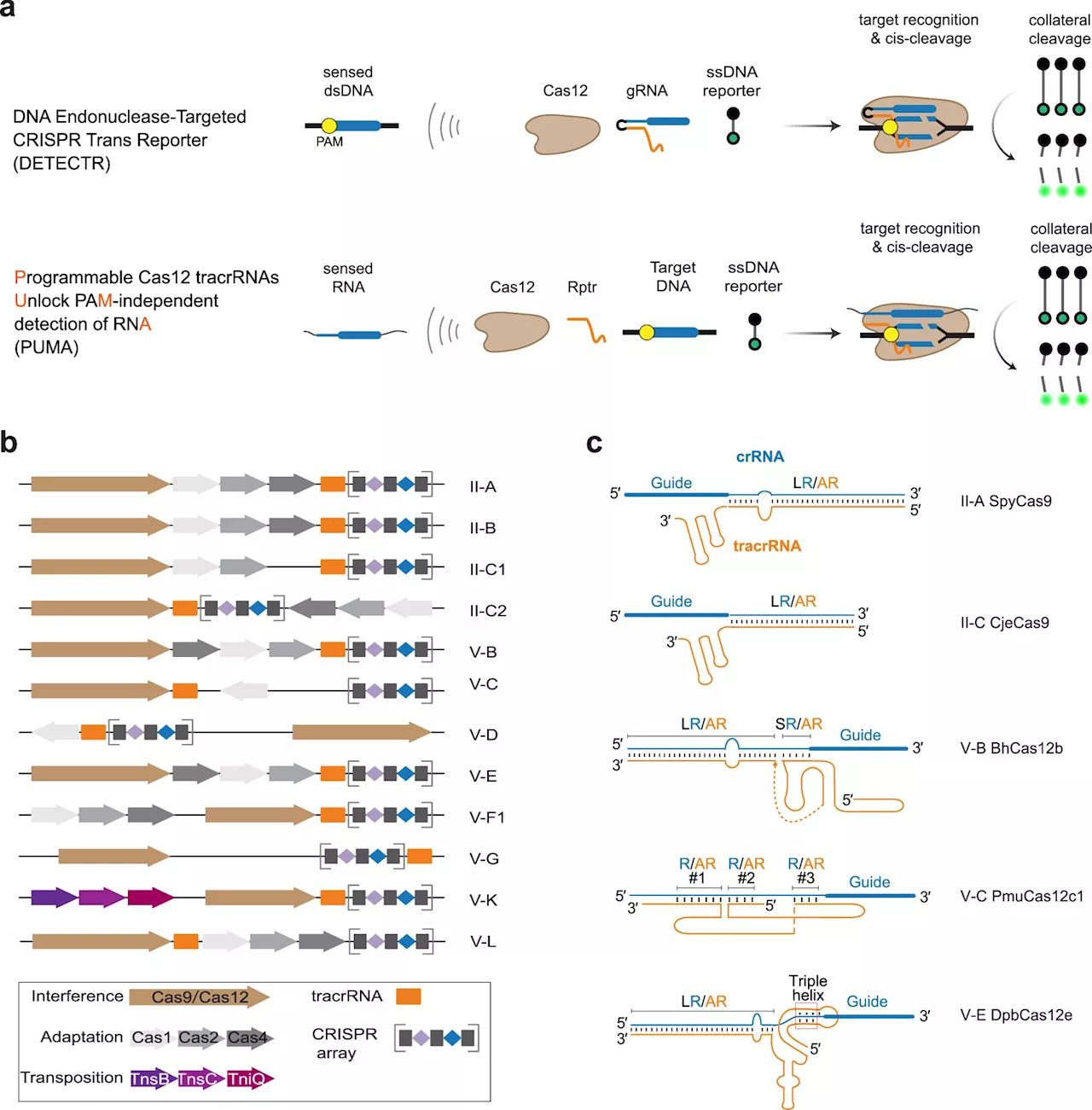CRISPR-Cas systems, defense systems in bacteria, have become a plentiful source of technologies for molecular diagnostics. Researchers at the Helmholtz Institute for RNA-based Infection Research (HIRI) in Würzburg have expanded this extensive toolbox.
A new addition to the CRISPR toolbox: Teaching the gene scissors to detect RNA retrieved 16 July 2024 from https://phys.org/news/2024-07-addition-crispr-toolbox-gene-scissors.html
This document is subject to copyright. Apart from any fair dealing for the purpose of private study or research, no part may be reproduced without the written permission. The content is provided for information purposes only.Use this form if you have come across a typo, inaccuracy or would like to send an edit request for the content on this page. For general inquiries, please use ourThank you for taking time to provide your feedback to the editors.
Your feedback is important to us. However, we do not guarantee individual replies due to the high volume of messages.to let the recipient know who sent the email. Neither your address nor the recipient's address will be used for any other purpose. The information you enter will appear in your e-mail message and is not retained by Phys.org in any form.Get weekly and/or daily updates delivered to your inbox.
Physics News Science News Technology News Physics Materials Nanotech Technology Science
United States Latest News, United States Headlines
Similar News:You can also read news stories similar to this one that we have collected from other news sources.
 Some CRISPR screens may be missing cancer drug targetsCRISPR/Cas9 gene editing has made possible a multitude of biomedical experiments, including studies that systematically turn off genes in cancer cells to look for ones that the cancer cells heavily depend on to survive and grow. These genes, or 'cancer dependencies,' are often promising drug targets.
Some CRISPR screens may be missing cancer drug targetsCRISPR/Cas9 gene editing has made possible a multitude of biomedical experiments, including studies that systematically turn off genes in cancer cells to look for ones that the cancer cells heavily depend on to survive and grow. These genes, or 'cancer dependencies,' are often promising drug targets.
Read more »
 Could CRISPR Genome Editing Technology Impact Your Business?I am the CEO of Everest Group, a leading research firm I founded in 1991 with headquarters in Dallas and offices around the globe.
Could CRISPR Genome Editing Technology Impact Your Business?I am the CEO of Everest Group, a leading research firm I founded in 1991 with headquarters in Dallas and offices around the globe.
Read more »
 Researchers develop RNA-targeting technology for precisely manipulating parts of human genesResearchers have harnessed a bacterial immune defense system, known as CRISPR, to efficiently and precisely control the process of RNA splicing. The technology opens the door to new applications, including systematically interrogating the functions of parts of genes and correcting splicing deficiencies that underlie numerous diseases and disorders.
Researchers develop RNA-targeting technology for precisely manipulating parts of human genesResearchers have harnessed a bacterial immune defense system, known as CRISPR, to efficiently and precisely control the process of RNA splicing. The technology opens the door to new applications, including systematically interrogating the functions of parts of genes and correcting splicing deficiencies that underlie numerous diseases and disorders.
Read more »
 'Bridge editing' could be even better at altering DNA than CRISPRThe CRISPR gene editing technique has revolutionised biology, but now an even more powerful system called bridge editing could let us completely reshape genomes
'Bridge editing' could be even better at altering DNA than CRISPRThe CRISPR gene editing technique has revolutionised biology, but now an even more powerful system called bridge editing could let us completely reshape genomes
Read more »
 99% gene transmission possible, China’s CRISPR tool boosts food securityScientists have developed CAIN, a CRISPR-based gene editing technique that utilizes a toxin-antidote system to manipulate plant inheritance.
99% gene transmission possible, China’s CRISPR tool boosts food securityScientists have developed CAIN, a CRISPR-based gene editing technique that utilizes a toxin-antidote system to manipulate plant inheritance.
Read more »
 Non-coding RNA acts as 'superhighway' for gene expression, study findsThe function of non-coding RNA in the cell has long been a mystery to researchers. Unlike coding RNA, non-coding RNA does not produce proteins—yet it exists in large quantities.
Non-coding RNA acts as 'superhighway' for gene expression, study findsThe function of non-coding RNA in the cell has long been a mystery to researchers. Unlike coding RNA, non-coding RNA does not produce proteins—yet it exists in large quantities.
Read more »
